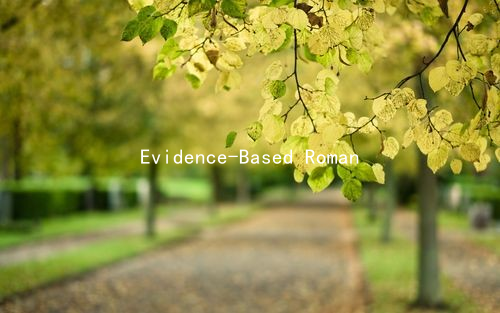Evidence-Based Romance: How Medical Research Can Transform Your Love Life
Evidence-Based Romance: How Medical Research Can Transform Your Love Life
In the realm of love and relationships, it often seems like intuition and personal experience reign supreme. However, recent advancements in medical research and psychological studies have illuminated pathways to improve romantic connections, making evidence-based strategies not just a novel idea but a transformative approach for couples. Here’s how you can harness scientific insights to elevate your love life.
1. The Science of Attraction
Understanding attraction begins with the basic biological principles of human behavior. Studies show that factors like physical appearance, scent, and even voice can significantly influence our initial attraction to potential partners. Research in evolutionary psychology suggests that we are subconsciously drawn to features that signal health and genetic fitness, such as symmetrical facial features or certain pheromones.
Moreover, some studies indicate that shared interests and values significantly enhance attraction. Engaging in activities that promote bonding, like team sports or cooking classes, can create lasting connections. Therefore, exploring common hobbies can boost attraction through shared experiences, resulting in a deeper and more meaningful partnership.
2. Communication Techniques
Effective communication is the cornerstone of any successful relationship. Research published in journals like the Journal of Marriage and Family emphasizes that couples who practice active listening and express empathy are more likely to maintain long-term satisfaction. Techniques such as reflective listening—where partners paraphrase what each other has said—can clarify misunderstandings and foster a supportive dialogue.
Moreover, the importance of “I” statements instead of “you” statements cannot be understated. Phrasing concerns in a way that focuses on personal feelings rather than accusations can prevent defensiveness and promote problem-solving. For instance, saying, “I feel neglected when you spend a lot of time at work” is more constructive than “You always neglect me for your job.”
3. The Role of Gratitude
A study from the University of Georgia found that expressing gratitude can significantly enhance relationship satisfaction. Regularly acknowledging and appreciating your partner fosters a positive environment and deepens emotional bonds. Simple acts, like saying thank you for small tasks or complimenting your partner’s efforts, can have profound effects. Not only does this create a nurturing atmosphere, but it also encourages reciprocity and goodwill.

Incorporating gratitude exercises, such as sharing three things you appreciate about each other every week, can help couples focus on the positives and reinforce their emotional connection.
4. Conflict Resolution Strategies
Conflict is inevitable in any relationship, but how you handle it can make or break your partnership. Research shows that couples who establish fair fighting rules—such as avoiding name-calling, staying on topic, and taking breaks when emotions run high—experience healthier resolutions.
Additionally, employing problem-solving methods like brainstorming solutions together rather than assigning blame can transform conflicts into opportunities for growth. Couples that view challenges as a team tend to strengthen their bond and improve satisfaction.
5. The Importance of Intimacy
Intimacy extends beyond the physical; emotional intimacy is equally crucial. A study published in the Archives of Sexual Behavior highlighted that couples who engage in deep conversations and share their vulnerabilities report higher levels of relational satisfaction. Creating safe spaces for open discussions about fears, dreams, and desires fosters closeness.
Moreover, physical touch, from holding hands to hugs, can release oxytocin, often referred to as the love hormone. This biological reaction strengthens emotional ties and enhances feelings of security and attachment with a partner.
Conclusion
By integrating the insights from medical research and psychological studies into your relationship approach, you can cultivate a stronger, more fulfilling partnership. Evidence-based techniques—from improving communication to fostering gratitude and resolving conflicts—equip couples with the tools necessary for thriving romantic lives. Love is a complex interplay of emotions and actions, but armed with scientific knowledge, you can make informed decisions that lead to lasting happiness and connection. Embrace the power of evidence-based romance, and watch your love life transform.





